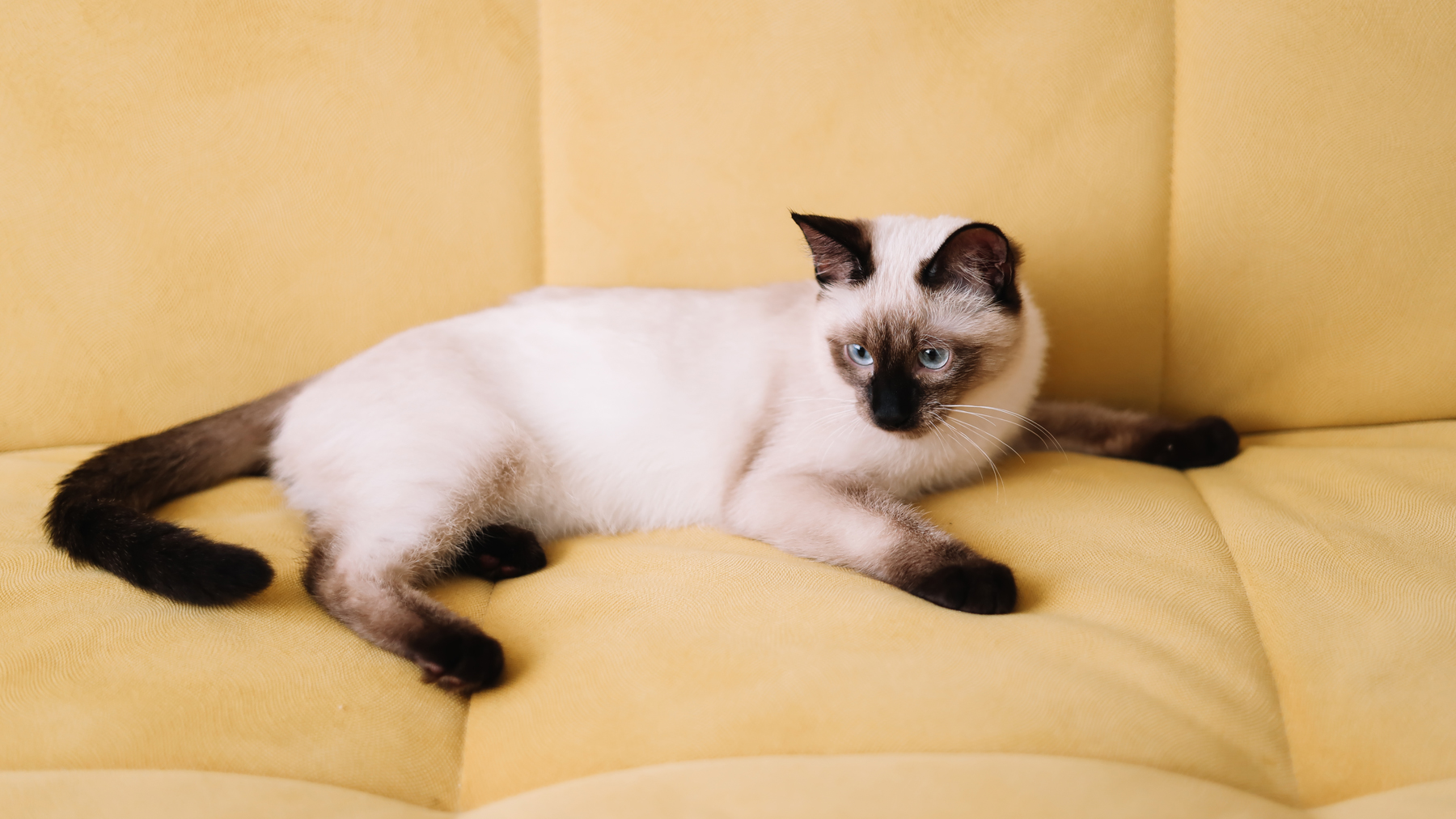8 fascinating facts about Siamese cats
Curious about Siamese cats? We unravel eight interesting facts about this distinct-looking breed

The Siamese cat has a very distinctive appearance with their blue eyes, slick figure, and unique coat markings. But, did you know that there isn’t just one kind of Siamese cat?
Hundreds of years ago, these feline creatures meowed their way all the way from Siam (old Thailand) into the West as generous gifts from royal Thai figures and there’s a lot to be said about them and their little quirks.
If you’re itching to stock up on the best kitten food and buy yourself a striking Siamese cat of your own or you just want to expand your knowledge on this unique breed, then keep on reading to discover eight interesting facts about the breed…
Fascinating facts about Siamese cats
1) They’re an old breed
It’s hard to pinpoint the precise origins of Siamese cats but from existing historical records, it's widely believed that they started out in Thailand. The International Cat Association says that Siamese cats have been traced back as far as 1350 when they were mentioned in manuscripts from Ayudha, an ancient Siamese city (now Thailand). If this is true, they could be one of the oldest cat breeds in the world.
2) They were sent to the UK by the king of Thailand
Despite the starkly early origins of Siamese cats, this breed of cat didn’t leave Thailand and arrive in the West until the 1800’s. It’s believed that in 1871, King Chulalongkorn of Siam sent some over to Europe to promote his kingdom.
It’s also reported that two Siamese cats were given to a British Consul in 1884 as a gift, which he brought home with him before showcasing its kittens at the Chelsea Palace Show in 1885.
3) They have unique coat coloring
If you look up images of Siamese cats you will quickly notice how varied their coat colors and markings are. This is partly due to genetics but also to temperature.
Get the best advice, tips and top tech for your beloved Pets
A cat’s coat is determined by various sets of genes, while the pattern of its fur is determined by something called modifier genes. This type of gene can cause a moggy’s coat to be individually patterned and it turns out that Siamese cats have a unique modifier gene that restricts pigment from developing in the coat, in other words, it causes albinism.
This unique modifier signal only affects a cat’s coat above a certain temperature, between 100 and 102.5 degrees Fahrenheit. So, if a Siamese cat’s body temperature reaches below 100 degrees Fahrenheit, the mutation is blocked and the color gene carries pigment to its fur. A cat’s body is typically colder around its tail, ears, nose, and paws and this is where the darker coloring tends to develop.
4) There is more than one type of Siamese cat
Depending on how much of a Siamese cat fan you are, you may not know that there is more than one type of cat in the Siamese family. They can be divided into two groups: traditional and modern. But to make things complicated, these two groups can be broken down again into more types.
Traditional Siamese cats can be divided into three types: Classic, Old-style, and Applehead. Then the modern Siamese cats can be broken down into two variations: Light-Colored and Wedge. The different types of Siamese cats are unique in their own way. Although they look different physically in small ways, they tend to all overlap personality-wise.
5) They used to share interesting features
Some time ago, many Siamese cats had crooked tails and crossed eyes. This was before they were viewed as undesirable features and were more than likely selectively bred out of them. While most people will put these traits down to genes, there are much more alluring tales as to why Siamese cats once roamed around with these features.
One Thai lore shares that Siamese cats were in charge of guarding Buddha’s golden goblet inside an ancient temple. They did so by intensely keeping watch with their eyes, so much so that their eyes eventually crossed. For optimum security they would also wrap their tails around the goblet, resulting in a permanent bend forming in their tails.
6) They used to receive royal treatment
Once upon a time in Thailand, Siamese cats were a type of breed only fit for royals to own. With their striking blue eyes, fascinating markings, and elegant bodies, they earned themselves a very grand reputation in ancient Thai culture. One reason why they were treated with such respect by Thai royals is that they believed Siamese cats would receive their soul after they die.
7) They make a great presidential gift
The first Siamese cat to enter the United States was a present sent from an American consul in Bangkok to Lucy Rutherford, the wife of President Rutherford B. Hayes, in 1879. After traveling the long way from Thailand to the White House, the cat was fittingly named Siam.
8) They are very vocal
If you love to chatter away to your pet, you’ll certainly receive some vocal backchat from a Siamese cat. This breed has a reputation for expressing themselves very vocally. If they don’t like their food, want more of the best wet cat food, or want to be let out they’ll make that clear via their distinct meows, which some people liken to that of a baby crying.
Are you enjoying learning all about certain cat breeds and expanding your feline knowledge? We have a list of 10 orange tabby cat facts that may surprise you or the answer to the commonly asked question, how many cat breeds are there?

Jessica holds a journalism degree from Cardiff University and has authored articles for renowned publications, including PetsRadar, Fit&Well, LiveScience, Runner's World, The Evening Express, and Tom's Guide. Throughout her career in journalism she has forged connections with experts in the field, like behaviorists, trainers, and vets. Through her writing, Jessica aims to empower pet owners with accurate information to enhance their furry companions' lives.
